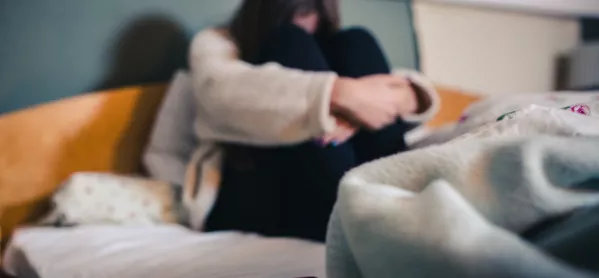More than 200,000 secondary school children may have been groomed online, research suggests.
A survey carried out on behalf of children’s charity the NSPCC found that around 4 per cent of young people aged 11-17 questioned had sent, received or been asked to send sexual content to an adult when using various sites and apps.
The charity said that one in 25 children had done so using Snapchat, Facebook or Facebook Messenger; one in 33 using Twitch or Twitter; and one in 50 using Instagram or WhatsApp.
Quick read: Schools to teach about consent and grooming in RSE
Guidance: What DfE wants schools to teach about online safety
Watch: How to spot the signs on online grooming
A total of 2,004 young people aged 11-17 were asked if they had ever sent messages with sexual content, been sent a naked picture or video or been asked to send these images, and the age of the person with whom they were interacting.
NSPCC chief executive Peter Wanless said: “The scale of risk that children face on social networks revealed in this research cannot be ignored and tackling it with robust and comprehensive legislation needs to be a priority for this government.
“Tech firms need to be forced to get a grip of the abuse taking place on their sites by using technology to identify suspicious behaviour and designing young people’s accounts with built-in protections.”
The NSPCC said that there are around 5,182,045 young people aged 11-17 in the UK, and estimated that therefore around 201,696 had sent, received or been asked to send explicit messages or images.
The charity has warned that paedophiles contact large numbers of children on social media and then encourage the ones who respond to move over to encrypted messaging or live streaming.
Those who are tricked into sending images, often after being threatened, can then be blackmailed into sending more.
Last month, then education secretary Damian Hinds called for tech giants to make sure children are treated as children online and protected until the age of 18.
He told an NSPCC conference: “I have seen some online companies arguing that children should be treated as adults online once they pass the age of 13.
“To them, I say this: children are children - this is as true in the online world as the real one. You have a responsibility to your young users and it is time for you to step up to make sure they are protected from online harms and upsetting content until they reach adulthood.”
His comments came as the Department for Education released a new guidance document, Teaching online safety in schools, which aims to help schools “teach pupils how to stay safe online, within new and existing subjects”.




